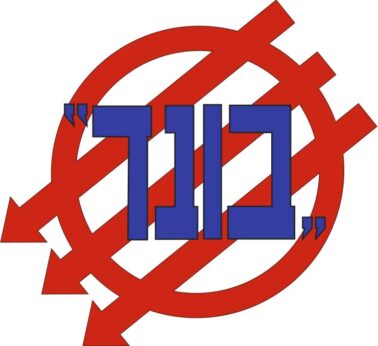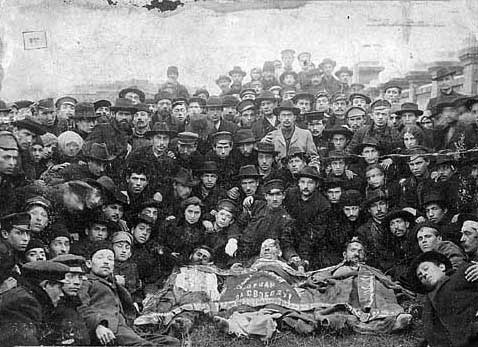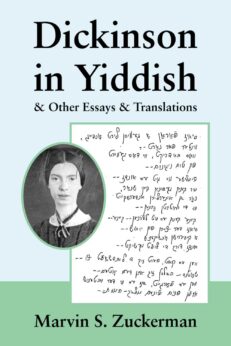
I guess by way of full disclosure I should state at the outset that I’ve known Marvin Zuckerman for almost 30 years, from the time I assumed the directorship of the Southern California District of Workers Circle/Arbeter Ring, of which he’s been a member all his life, and he’s over 90 now.
When he asked if I’d review his new book, Dickinson in Yiddish & Other Essays & Translations, an ingathering of over 50 years of writing, I said yes. “But Marvin, you have to understand, when I review a book, friendship stops at the title page.”

Born in the Bronx in 1932, Zuckerman grew up in a Bundist family emanating out of Warsaw, the Bund being that storied secular socialist Jewish labor movement founded in 1897 that organized Jewish workers and their wider circles in Poland, Russia, Lithuania, and elsewhere. In the earliest years of the organization, it was the largest movement of workers anywhere in the Russian Empire. It also operated as a registered political party, representing the interests of its Yiddish-speaking following, achieving majority votes in Polish elections in the late 1930s for the designated Jewish seats in the Polish Parliament. Jews comprised about 10 percent of the population of Poland.
The Bund established labor unions, social welfare institutions, day schools, adult education, well-regarded medical clinics, sports leagues, literary, musical, and cultural organizations, and published several newspapers. Jews could pursue a full life entirely in Yiddish—although they often knew Russian, Polish, Lithuanian, and other local languages.

When Bundists emigrated to the United States they gravitated toward a similarly oriented socialist organization, the Arbeter Ring (then the Workmen’s Circle), which had all the familiar linguistic, cultural, and fraternal amenities they knew from home, but was not a political party. As happened with many other groups in the heady early period of the Russian Revolution, a division soon arose in the socialist movement over the Soviet experiment—to join in and support it, or reject what they saw as the dictatorship of the Communist Party to the exclusion of all other tendencies. That is a breach that still raises voices and gets veins a-bulging in certain spaces.
Not surprisingly, Zuckerman’s writings center around his understanding of socialism, his knowledge of the Bund, its history and leaders, and the Yiddish culture, literature, and language that was the shared patrimony of those movements. He moved to Los Angeles in the 1950s and became a professor of English and Yiddish at Los Angeles Valley College, where he chaired the English Department for 15 years and was Dean of Instruction for six years. From that perch, he became acquainted with scholarly publications. In one of them, an enterprising editor took up the idea of publishing translations of Emily Dickinson’s poem “There’s a certain Slant of light” in several languages, with an explanatory text by the translators detailing the specific problems of rendering her oblique concepts into vastly different idioms. Thus the somewhat arch title of Zuckerman’s book which, cute as it is, hardly begins to telegraph the preponderance of what he writes about.
Zuckerman is the author of several college-level English textbooks, as well as a popular introductory book, Learning Yiddish in Easy Stages. Between 1991 and 1996, with a bevy of collaborators, he published what I believe will be mentioned first in his epitaph: A set of hefty volumes dedicated to The Three Great Classic Writers of Modern Yiddish Literature, namely Mendele Moykher-Sforim, Sholem Aleykhem, and I. L. Peretz. Out of a 371-page book, 100 pages are devoted to his introductions to these three anthologies, which alone stand as a cursory lay reader’s guide to these writers’ lives and to their rich output, sensitively situated within the turbulent times of the last half of the 19th century and the first decades of the 20th.
The opening essay, from 1972, concerns the murdered Soviet Yiddish writers, and poets such as Perets Markish, Itsik Fefer, Leyb Kvitko, Aaron Kushnirov, and Dovid Hofshteyn. Zuckerman cites the number of 24 writers executed on August 12, 1952, but according to most other accounts, it was about half that. In the context of rage against the Soviet machine (the fallback stance of the Bundist mindset), Zuckerman nevertheless finds room to appreciate these writers’ work, not all of which by any means was composed-to-order in praise of socialism. “The Stalinists have killed them, but they cannot take them and their poetry from us. They remain ours forever.” To his credit, this is quite a different approach from the usual Workers Circle one of mourning the executions as an anti-Soviet gotcha, but damning the poets anyway—whom they didn’t read—because of their loyalty to their country and its ideals.
He repeats the social-democratic line that these murders spelled the “tragic end” of “Soviet-Yiddish cultural expression,” but this is demonstrably untrue. After their “rehabilitation” in the late 1950s, following the Khrushchev revelations, these poets’ work was republished and new opportunities for Yiddish writers opened, such as the long-running magazine Sovetish Heymland (Soviet Homeland) under the editorship of Aron Vergelis and the daily Yiddish newspaper published in Birobidzhan (which Zuckerman spells “Biro-Bidzan.”) In recent years several editors of the Yiddish Forverts, a New York-based newspaper dating back to 1897 and parent to the later English-language Forward, came to the U.S. as immigrants from the USSR, having learned their Yiddish and become writers in their homeland. (Zuckerman inconsistently writes “Kruschev” and “Krushchev,” and uses the term “Checkovian” rather than the standard “Chekhovian.”)
In other articles, Zuckerman writes about the seminal poet Yehoash, whose magnum opus was the Hebrew Bible translated into modern Yiddish. He rescues from oblivion the German not-Jewish anarchist leader and writer Rudolf Rocker, who learned to speak, read, and write Yiddish in order to cast his lot in with the Jewish anarchists he found in Paris, London, and America. In “Musterverk Fun Der Yidisher Literatur,” published as recently as 2024 in Pakn Treger, the magazine of the Yiddish Book Center, he pays tribute to a humble soul from Buenos Aires, the late Shmuel Rozhanski (also spelled Rozhansky and Rollansky), who set about publishing a comprehensive 100-volume library of Yiddish writing at the rate of four books per year, with scholarly apparatus concerning the contents of each one. And he has a charming reminiscence of two days spent in L.A. with the Nobel Prize-winning author I.B. Singer.
I vividly recall one afternoon at Workers Circle when Marvin presented the second edition of a book he co-edited with Gershon Weltman, Yiddish Sayings Mama Never Taught You, comprising off-color rhymes, jokes and witticisms—many of them, steeped in Biblical references and local color, almost impossible to translate—originally compiled by the folklorist Ignaz Bernstein (1836-1909) and now offered in the original and a discerning translation. The editors make a profoundly perceptive point: “[W]e see that even the most explicit sayings are totally without the edge of cruelty, which we often find associated with sex in our culture. The speakers, who seem to be mainly men, are sometimes cutting, but more usually philosophical, even self-deprecating. And in the end, cruelty is perhaps the only real obscenity.” They critique the Fiddler on the Roof caricature of mild, saintly Eastern European Jews as itself a disservice to Jewish humanity, encouraging readers to discover “these…remnants of the vital, living culture from which they spring, and which tragically exists no more.” One wise and pithy saying I recall from that book party has stayed with me all these years: “A vort un a forts ken men nit tsuriknemen.” You can’t take back a word or a fart!
On socialism, his pro-immigrant 2010 article “Capitalism with a Mentshlekh Ponem (Human Face),” a translation of a 2005 essay in the Bundist publication Undzer Tsayt, demonstrates that even within the constraints of capitalism, most of the countries of Western Europe are so much more humane than the U.S. in terms of healthcare, housing, child support, working conditions, etc. He reserves a special word of opprobrium for Israel, citing a recent documentary asserting “that eighteen Israeli families control some 70 percent of the country’s financial assets. This is not what the social-democratic founders of Israel had in mind.” Another review essay assesses Bernie Sanders’ book It’s OK to Be Angry About Capitalism. I would venture that Zuckerman’s socialism is highly resonant with that of the independent senator from Vermont, with a sympathetic nod in the anarchist direction.
As I learned in my tenure with Workers Circle, both the socialists and the communists had good reasons to hate each other—and also good reasons to ally in the face of new fascist dangers. Now that the Soviet Bloc no longer exists, Marvin’s anti-communism has lost some of its punch. One sign of his softening of views over the years is the fact that he published some of his work in Jewish Currents magazine, which had an early affinity with the CP, and that several of the poets, writers, and translators he worked with also had their CP connections.
One of Zuckerman’s most significant efforts is his translation of Bernard Goldstein’s Twenty Years with the Jewish Labor Bund: An Interwar Memoir, published in 2016. From it, he excerpts a 27-page Introduction studded with historical photos.
Dickinson in Yiddish also carries other book reviews, translations of Yiddish poems, talks, and letters, too many to name individually. One, however, that may surprise a reader unfamiliar with this writer, is his bikini-size review of a book called Surfing. And what makes Marvin Zuckerman an expert on surfing, you will ask? Quite a bit, as it turns out! He is married to Kathy “Gidget” Zuckerman, whose father Frederick Kohner (1905-1986), a German Jewish émigré writer, settled in L.A. His daughter would hang out on the beaches of Malibu with the emerging hip surfer crowd. Out of the stories she came back home to tell around the dinner table, he created the character Gidget.
Zuckerman makes an admirable point of his preference for the YIVO standard for the transliteration of Yiddish, but quite a few inconsistencies crop up—for one example, the Bundist sports organization Morgenshtern (“morning star”) but generally, he leaves out the “h” as if the word were German. He refers to Vilnius (in whose outskirts the Bund was clandestinely founded) and its Germanic spelling Wilno, without using the Yiddish name Vilna (or perhaps more properly Vilne). Kaddish is rendered with two d’s and with one. The spelling of the Jewish enlighteners, the maskilim, is rendered (p. 209) as maskilini, suggesting that perhaps a photographic version of the original page was misread by the camera and never corrected. Rosa Luxemburg is misspelled, and Bundist leader Henryk Ehrlich is sometimes Erlich, and anyway, shouldn’t it be Erlikh? Speaking of Henryks—Henrick Ibsen? Italics are absent or misused in places. The skimpy index only includes personal names and is disappointingly incomplete. In short, the English professor’s work is too often marred by such typo- and orthographical lapses.
 Our SoCal Arbeter Ring honored Marvin in 2006 with our Yidishkayt Award for the promotion of Yiddish language and culture. In Dickinson I encountered an interview the unsigned WC/AR conducted—that is, I conducted with him—for our awards journal. In it, WC/AR wrote: “To sit down with Marvin Zuckerman for a chat is to open up a world of expertise and reflection,” and despite my few reservations, I would say the same to anyone who chooses to open up his new collection of writings.
Our SoCal Arbeter Ring honored Marvin in 2006 with our Yidishkayt Award for the promotion of Yiddish language and culture. In Dickinson I encountered an interview the unsigned WC/AR conducted—that is, I conducted with him—for our awards journal. In it, WC/AR wrote: “To sit down with Marvin Zuckerman for a chat is to open up a world of expertise and reflection,” and despite my few reservations, I would say the same to anyone who chooses to open up his new collection of writings.
Marvin S. Zuckerman
Dickinson in Yiddish & Other Essays & Translations
Los Angeles: Brass Tacks Press, 2024
371 pp., $25
ISBN: 979-8-9898514-0-9










